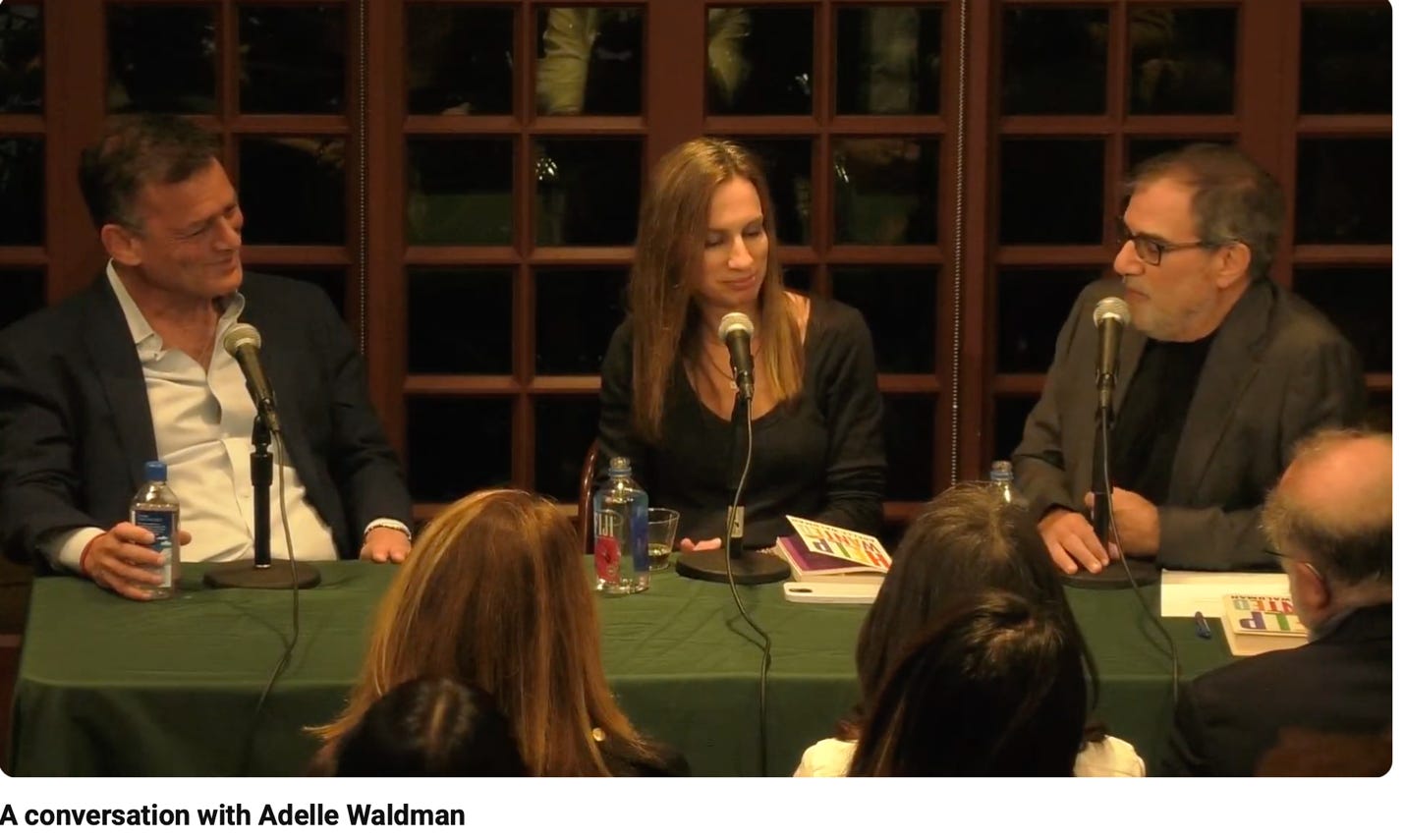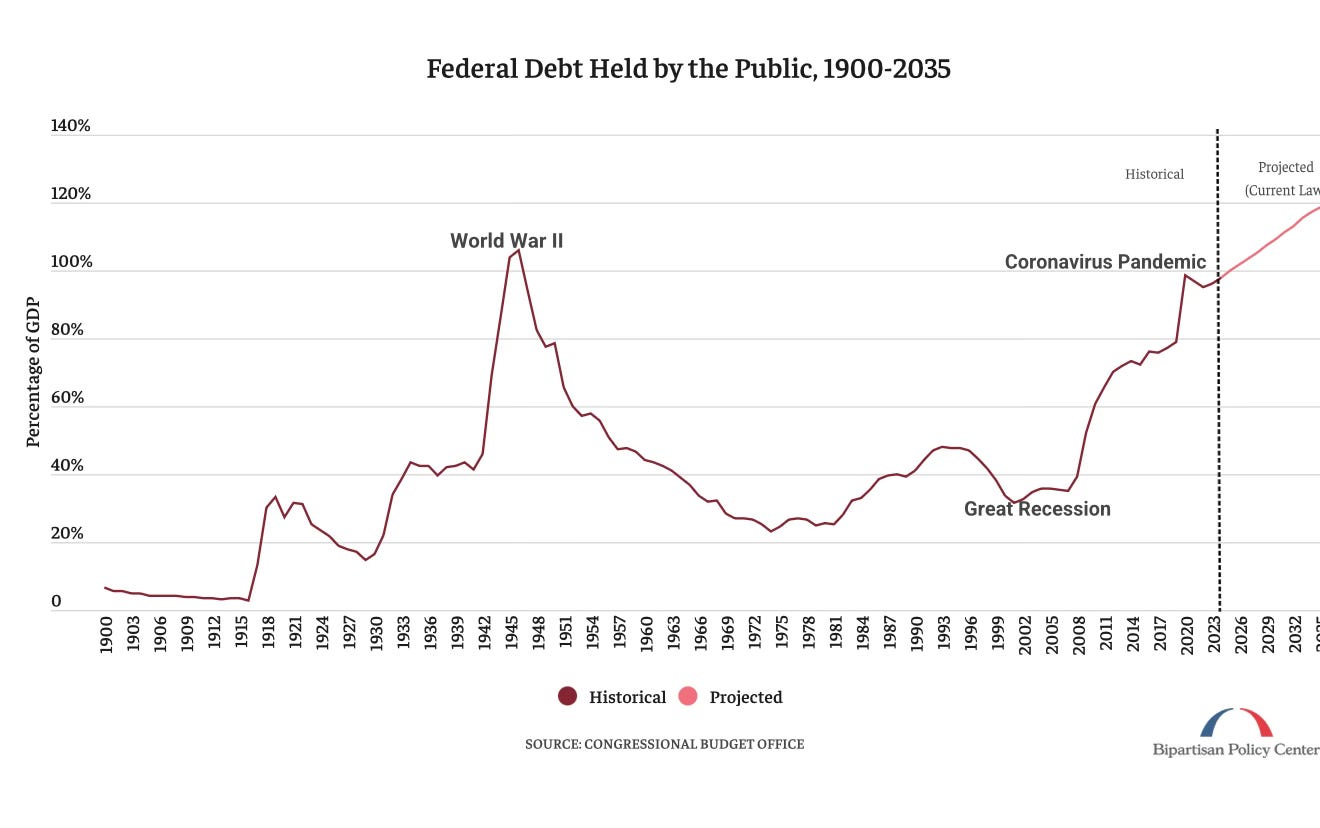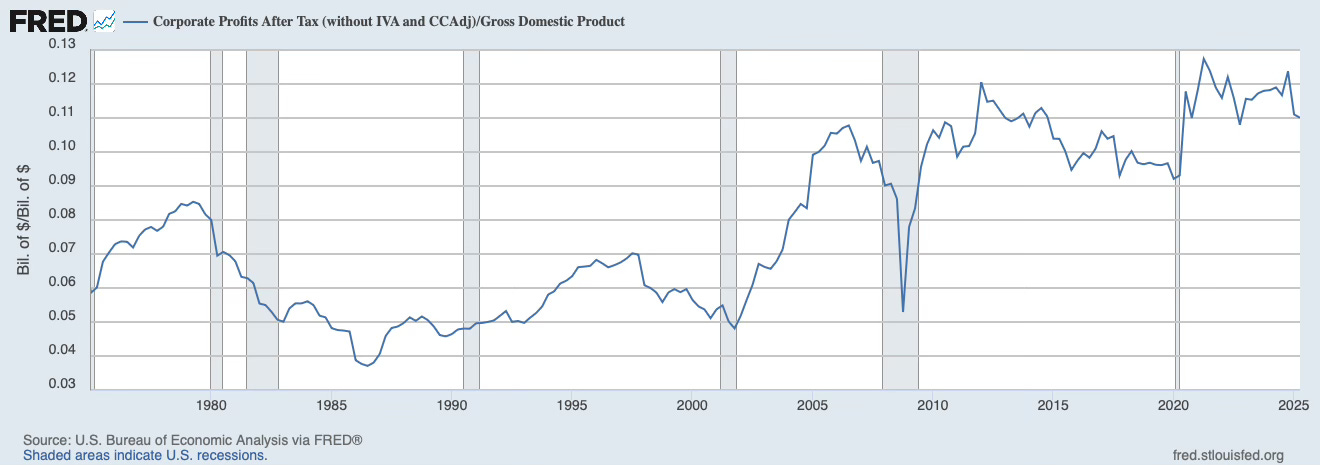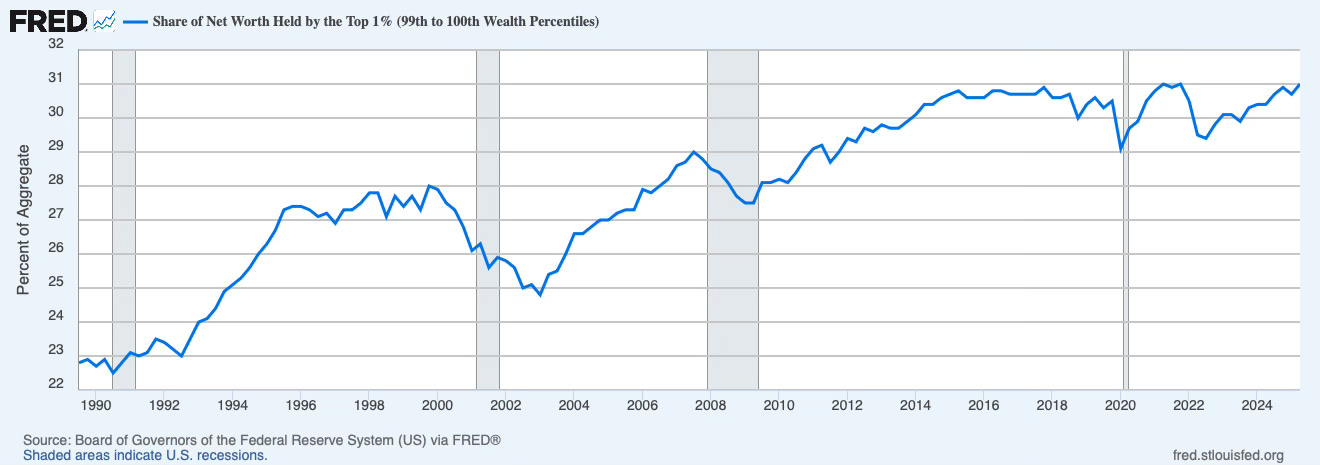My Inner Authenticity And Capitalism Without Guardrails
I present myself most often as happy and calm. Far more often than I actually am.
First, a flash of my inner authenticity
I was zooming with a fellow Substack writer this week. She said she was surprised I had written a post about envy1 because to her it seemed like my life was ideal. Her comment made me realize that many readers may reach the same idyllic conclusion about me based on the surface details of the life I lead.
I write truthfully but I give a very small, usually non-speaking, role to my anxieties and doubts. Because to complain about any inner turmoil seems ungrateful, spoiled, a failure to read the room, and so on.
The reality is I have frequent anxieties and doubts about many things. I have a large, close, and loving family but with true love comes responsibility and worry. As my family grows, so too grows that inseparable trio of love, responsibility, and worry.
I’m 63 and I think about mortality and legacy and whether what I’ve done and what I’m doing is sufficiently worthwhile, whether it comes close to what I’m capable of doing. I’m involved in all sorts of activities, both capitalistic and charitable. I write this weekly newsletter and I’ve been working on a novel at the same time. All these things clamor for attention inside my head. Sometimes quite unpleasantly. To escape myself, I use books and television.
Specifically and recently, I worry that writing both this newsletter and trying to write a novel––a self-inflicted wound––means I’m not doing justice to either project or to other aspects of my life.
I go through moods of sadness that my wife experiences fully because we are together so much. When I’m down, I present a false front of cheerfulness to almost everyone else, which makes it worse for her.
I have fits of impatience and, as with my moods, my wife bears the brunt of it. Although at times my children get to experience my impatience as well.
In my writing, when I convey confidence, it’s because I’m confident about the specific matter I’m writing about at that specific time. But please don’t mistake that confidence for a mind that is consistently confident or consistently undisturbed or a body that is immune to stress. When I press publish, I always feel some measure of terror.
Capitalism Without Guardrails
This week I was at Kelly Writers House2 at UPenn with Professor Al Filreis and Adelle Waldman discussing her novel Help Wanted. It’s a novel in the tradition of 19th century Realism about a group of workers who fill the 4-8 am Movement shift unloading and sorting merchandise in a Big Box retailer’s warehouse. The video of our discussion can be found at the bottom of this post.
Adelle worked for six months in a Target warehouse to do research for Help Wanted. Her novel is an example of the phenomenon that excellent fiction can convey reality far better than non-fiction.
Help Wanted’s Movement workers are victims of profit maximizing capitalism. They are paid little, purposely given limited hours so they don’t qualify for corporate benefits, are food insecure despite SNAP––they grab office donuts for sustenance, not just to satisfy a sweet tooth––and have little to no prospect for advancement given their lack of a college degree.
Yet the workers are scrupulously dependable and take pride in their work as a team; they strive to set speed records for completing the unloading. They’re witty and find their moments of pleasure. Adelle presents them in the book as she found them in real life: with interesting and diverse backstories and likable.
There are no villains or heroes in Help Wanted, a point Adele emphasized. The Big Box retailer is under fierce competition from Amazon, Walmart, and many others. Its executives are under similarly fierce pressure to maximize profit for their shareholders. Everyone behaves according to the rules of the system. They really don’t have a choice.
My views have changed
Eighteen months ago, I wrote a post that was sparked by reading Help Wanted. I joined the chorus of thinkers proposing that the way to tame our American hyper-capitalism is to expand our social safety net to be more like our peer developed nations, particularly in Continental Europe. We’d pay for it through higher taxes on a broad and progressive basis. 3
I no longer think that’s a viable standalone solution. For one thing, we need higher taxes to pay for what the government already spends. Our national debt and our federal annual deficits are likely the greatest national security threats we have. 4
A different solution
Workers like those in the world of Adelle Waldman’s Help Wanted should be paid enough in money and benefits so they don’t need increased government assistance. Their employment should relieve them from having to grapple with constant precarity in their basic needs like food, shelter, and healthcare. They should have full-time jobs with benefits. They should have dignity.
That’s the definition of a “good job,” regardless of industry.
And of course it’s not just warehouse workers, it’s workers across industries. For example, Dana Miranda, who writes the newsletter Healthy Rich, writes below in her recent essay I Was Laid Off This Week. It Could Have Gone Better:
“I’m mad at the injustice of it. I’m mad because of how poorly, cruelly, irresponsibly it was handled by a company that’s put its workers through layoffs before and should know better how to at least do it with compassion. Or to imagine, in the slightest, that the numbers they just cut from a spreadsheet are attached to actual humans.” 5
The entire essay is well worth reading. Link in footnote 5.
The phone call has to come from outside the house
I know of no individual who voluntarily pays more in taxes than the rules require. Similarly, the corporations who pay their employees more than the market would require are rare enough to prove the rule that profit maximization is the driver of decision making about employee compensation.
The solution then has to come from outside the business community, i.e., it needs to be political. Legislation is needed If workers are going to have the dignity of certain minimum rights that include benefits, adequate compensation, and a decent level of job security.
The dreaded “U” word
Part of any solution would probably include a government-enabled renaissance of private labor unions. In 1975, about a third of private sector employees were in unions. Today that number is down to 6%.
Capitalists hate unions because they work!
The renaissance of unions as well as the enactment of stricter legislation requiring employers to provide healthcare, other benefits, and adequate notice of layoffs would cut into corporate profitability and slow economic growth. Corporate profit margins would then decline. Financial wealth would then decline as well.
Profit margins are currently elevated as are the scale and concentration of financial wealth. There can be some give.6
More good jobs for slower growth and lower profits. That’s a good trade because otherwise the “rough beast” that reverses hyper capitalism and ends this Second Gilded Age may be far worse for everyone. 7
Question for the comments: Feel free to comment on either “My Inner Authenticity” or Capitalism Without Guardrails” or let me know if you like the two short essays format.
Below is the full video of the conversation among Adelle Waldman, Al Filreis, and me at Kelly Writers House.
Kelly Writers House is an amazing literary community with many programs open to anyone. It’s an actual house on the campus and combines the online and the in-real-life in a beautiful way.
There’s some hard to predict set of circumstances when a country’s debt and future deficit situation become untenable, and the result is financial panic. Both American political parties have been irresponsible about deficits. I fear responsibility will only come when the panic comes.
The scariest dystopian novel I’ve read is Lionel Shriver’s The Mandibles. It’s an all too realistic scenario of a debt panic in the near future. Far scarier than zombies!
I wrote about that fear recently in Our Second Gilded Age Goes Supernova. Also, this is my second post in a row that references the Yeats poem “The Second Coming.” I’m full of passionate intensity for that poem.








I liked this, and agreed with the last paragraph. I'm just not convinced that a better pay/slower growth strategy will work. Slower growth means fewer jobs, so the people who have jobs have better jobs, but there will more people with no job at all. P. S. You're a talented writer with something to say, so yes to the Substack and yes to the book.
It's obvious that Bezos, Zuckerberg, Musk, et al should be paying more in taxes than they do, but the GOP (and Trump) are beholden to them. I'm not saying they are no billionaire Democrats, but the out and out Inaguration attending, Tim Cook presenting a made up award to Trump, etc, make it clear.
I've purposely bought as little as possible from Wal Mart for years because of their treatment of their workers. I read an article in the WSJ years ago that they deliberately classify the majority of their hourly workers as part time to avoid paying benefits. In counties where Wal Mart is the main employer, the majority of ER visits are from Wal Mart workers because they can't afford to go to a doctor. A year or two a story went viral that a local Wal Mart was having a food drive... for its own employees! I don't want to hear how wonderful the Crystal Bridges Museum is if you are not paying your workers enough.
I am a retail sales person on commission in an upscale suburban mall. My employer likes to consider themselves 'one of the good ones' and in many instances they are. But retail is retail, they are going to schedule you when they want (luckily my kids are grown so I don't have to worry about childcare) and tell you to do multiple jobs so they don't have to hire more support staff. I'm not sure that a Union works for commission associates, but never forget that we have a weekend because of the Unions!